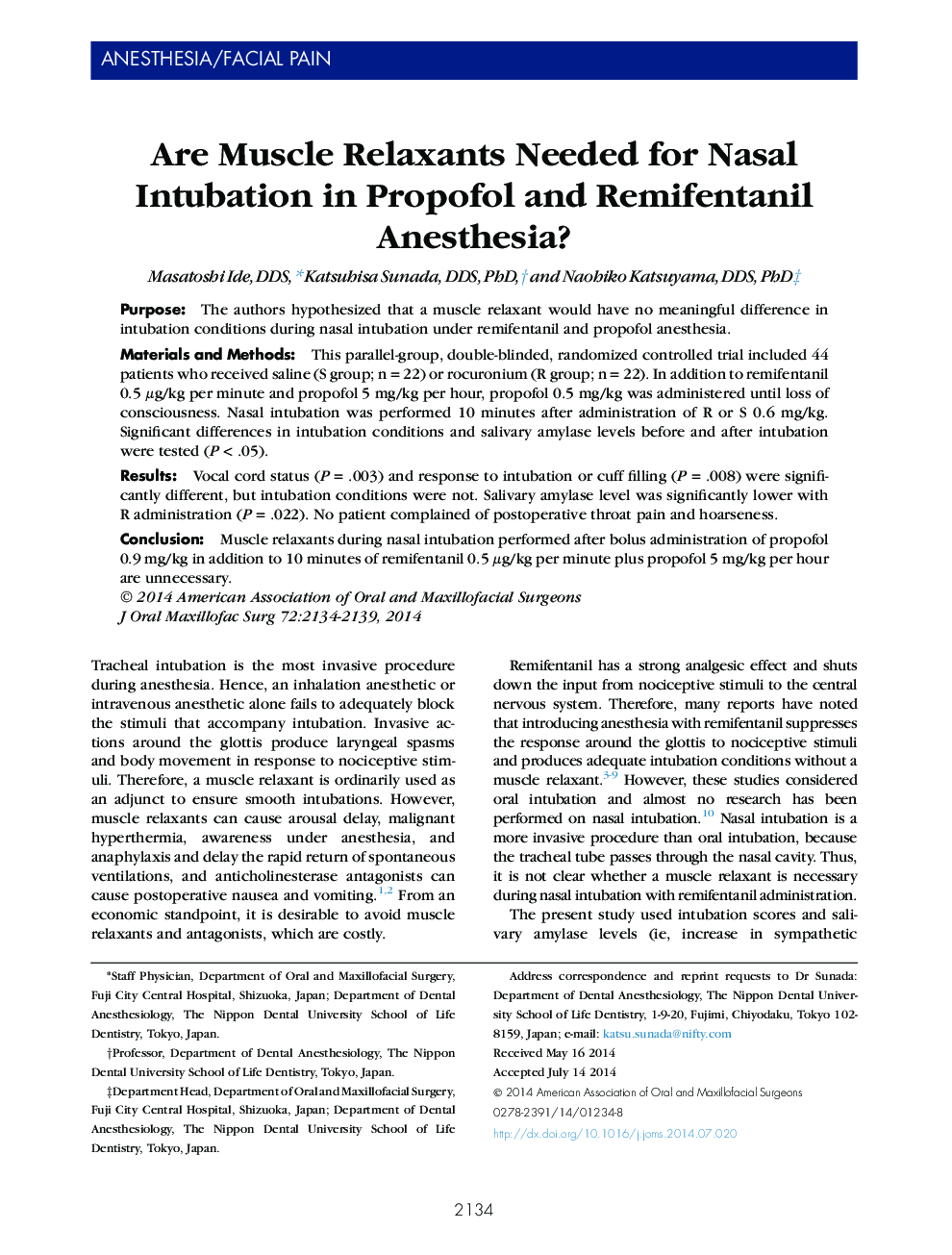| Article ID | Journal | Published Year | Pages | File Type |
|---|---|---|---|---|
| 3157830 | Journal of Oral and Maxillofacial Surgery | 2014 | 6 Pages |
PurposeThe authors hypothesized that a muscle relaxant would have no meaningful difference in intubation conditions during nasal intubation under remifentanil and propofol anesthesia.Materials and MethodsThis parallel-group, double-blinded, randomized controlled trial included 44 patients who received saline (S group; n = 22) or rocuronium (R group; n = 22). In addition to remifentanil 0.5 μg/kg per minute and propofol 5 mg/kg per hour, propofol 0.5 mg/kg was administered until loss of consciousness. Nasal intubation was performed 10 minutes after administration of R or S 0.6 mg/kg. Significant differences in intubation conditions and salivary amylase levels before and after intubation were tested (P < .05).ResultsVocal cord status (P = .003) and response to intubation or cuff filling (P = .008) were significantly different, but intubation conditions were not. Salivary amylase level was significantly lower with R administration (P = .022). No patient complained of postoperative throat pain and hoarseness.ConclusionMuscle relaxants during nasal intubation performed after bolus administration of propofol 0.9 mg/kg in addition to 10 minutes of remifentanil 0.5 μg/kg per minute plus propofol 5 mg/kg per hour are unnecessary.
